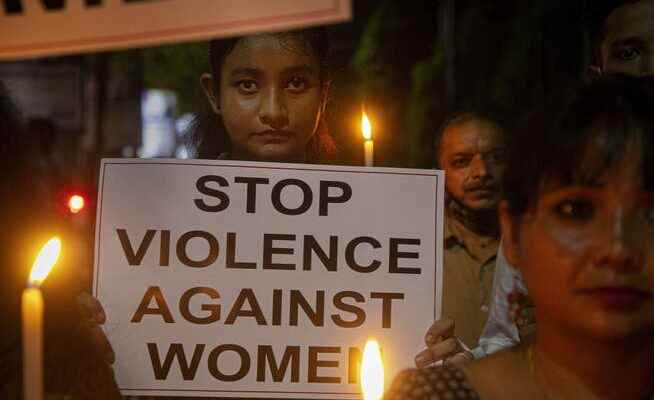Three men sentenced to death for rape are released. Victim’s family and activists are appalled.
Women and men demonstrate in 2020 after the alleged gang rape and killing of a woman in the state of Uttar Pradesh. India registers over 30,000 cases of rape every year.
India’s Supreme Court has acquitted three men sentenced to death in 2014 after a brutal rape case. Ten years ago, the perpetrators abducted a young woman and raped her in a field in Haryana state, which is notorious for sex crimes. The 19-year-old was found dead four days later. Her body was mutilated, tortured and partially burned.
Earlier this week, however, the Supreme Court concluded there was no “conclusive, compelling and inconclusive evidence” that they committed the crime. At first everything sounded like a clear case. The three men had confessed to kidnapping, raping and killing the woman. Prosecutors also referred to DNA samples, blood, hair and semen from the car, which proved the presence of those involved. The wallet of one of the suspects was also found at the scene.
Court doubts the evidence
Of the 40-page decision of the Supreme Court but now lists a number of inconsistencies in the investigation and evidence. For example, the court criticizes the fact that the police officers involved in the arrest were not questioned, which casts a “cloud of doubt” over the circumstances of the arrest. In addition, according to the court, no one could identify the accused without a doubt. And in the log of the confiscated items, the wallet is mentioned, but not the documents such as driver’s license and bank card, which can be assigned to the perpetrator. Had they actually been found, no officer would have made such a mistake as not to mention them in the record, the judges conclude.
Ten of the nearly 50 witnesses were not cross-examined. And as for the evidence in the car — hair, semen, blood — the court says there’s no clear evidence that the car was actually sealed until forensic analysis, which wasn’t done until two weeks after the seizure.
In short: the court does not rule out that important evidence could have been manipulated. The accused were deprived of their right to a fair trial. In view of the “blatant mistakes in the course of the process”, the three-member committee felt compelled to acquit themselves – even though the accused had been involved in a very heinous crime. And although the decision concedes that the lack of punishment “means frustration and agony for society and in particular for the victim’s family”.
Dismay among the victims’ families, activists and lawyers
Activists and lawyers are horrified, and many are outraged on social media. “We had waited for justice for ten years. We had faith in the judiciary, we believed that the Supreme Court would uphold the death penalty and that my daughter’s killers would finally be hanged,” the father of the slain woman told the BBC. His hopes for justice were dashed within minutes.
This photograph ?
(This was after the SC overturned the death sentence to 3 men convicted of raping and killing this man’s daughter in 2012) pic.twitter.com/msuCgRh1J0
— Shiv Aroor (@ShivAroor) November 8, 2022
“The court must give her family some kind of reparation,” said activist Yogita Bhayana, who has supported the family in their fight for justice for years, told the BBC and was surprised by the turnaround. She noted that if the Supreme Court had had concerns about the investigation, it could have reopened the case, handed it over to the federal police, or ordered another investigation.
The family’s lawyer also criticized the arguments as being hyper-technical and absurd. She announced to the BBC that she would contest the decision.
